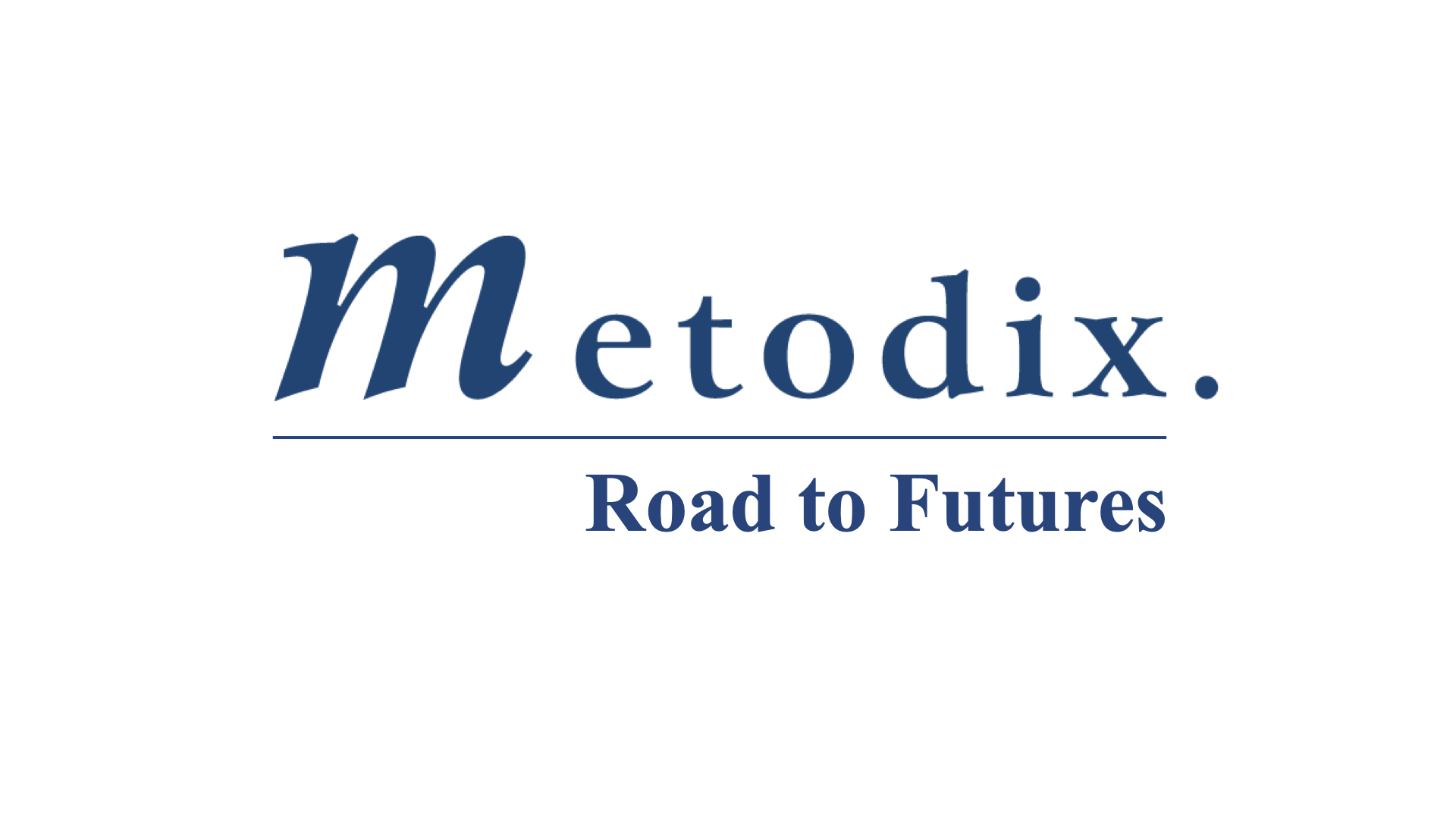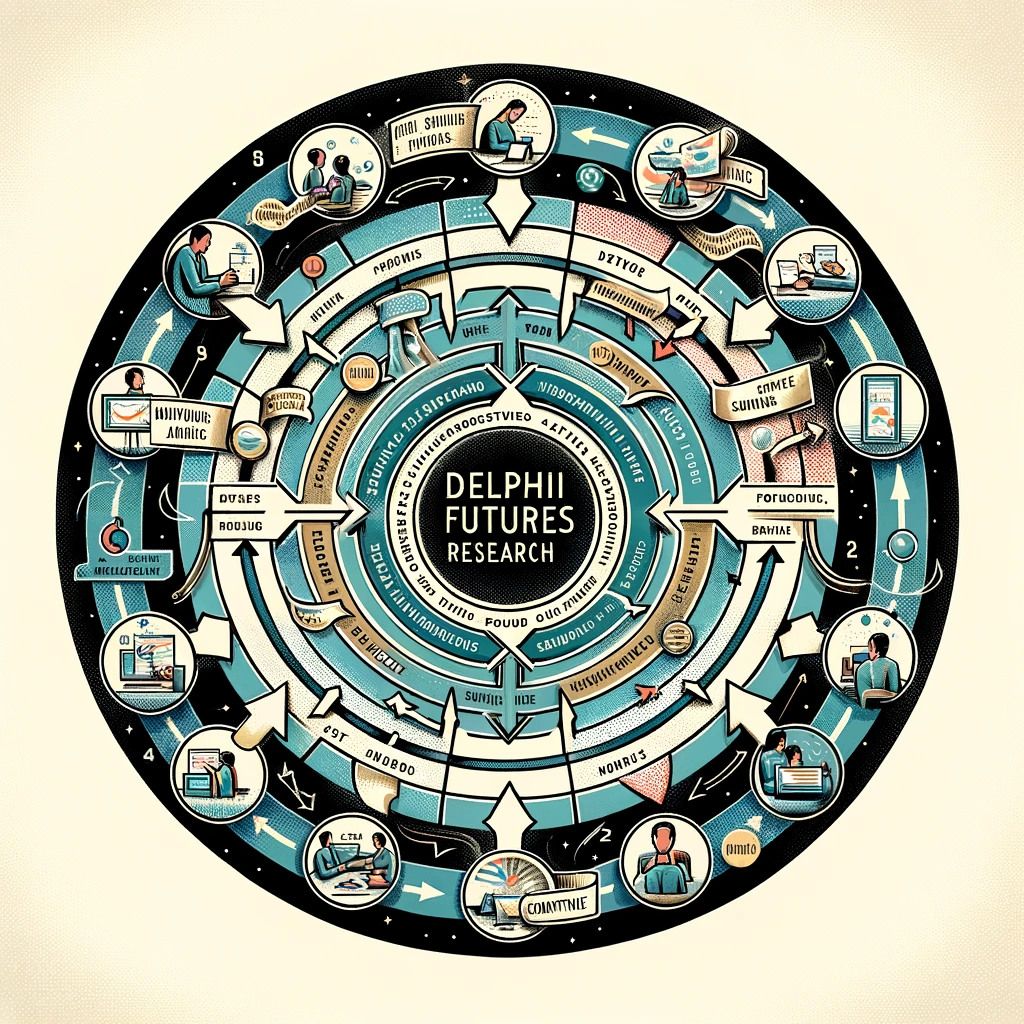1. The many Purposes of Delphi

Hannu Linturi, © Metodix Ltd, published 1.2.2024 testi
"The purposes of the futures studies are to discover or invent, examine or evaluate, and propose possible, probable and preferable futures." (Wendell Bell 2003)

Delphi Oracle bot as an assistant of Delphi Method
For the use of the Delphi method, five distinctly different purposes can be identified. A couple of promising new functions are also being tested. Recognizing the purpose of research or development is essential, as it affects everything else. "Everything else" refers to differences in objectives, implementations, and role assignments, which will be discussed in later articles of the blog series. The method blog series will publish nine articles: (1) The Purposes of Delphi, (2) The Steps of Delphi, (3) The Characteristics of Delphi, (4) The Delphi Panel, (5) The Delphi Manager, (6) The Delphi Rounds (iteration), and (7) Delphi Method Connections, (8) Delphi Analysis (future mapping), and (9) The Future of Delphi.
The Delphi method perhaps fulfills more comprehensively than any other method Wendell Bell's definition of the purpose of future studies. It is a versatile tool for drafting and conceptualizing a future map, which describes possible, probable, and desirable futures.
What is Delphi?
The Delphi method is an expert method developed in the 1950s at the Rand Corporation in the United States. It involves guided and anonymous opinion formation, argumentation, and discussion, aiming for progressively deeper communal knowledge formation about a complex phenomenon whose future is open and about which choices and decisions are to be made in the near future. The actors in Delphi are the Delphi manager (= researcher, facilitator), the Delphi panel (a diverse and multivocal group), and the Delphi panelist (= expert, evaluator, discussant).
The Consensus Delphi: Decision-making Path
The function of the traditional and original Delphi variation was to ensure a wise and, at the very least, the best possible decision in situations where there is pressure to make choices quickly. The premise was and is that the best argumentation usually leads to the best decision. The Delphi process aims to identify and filter out these best arguments. First, clear questions are formulated, opening up different future options regarding how the phenomenon might develop and what choices will arise. The second task is to select a knowledgeable group of evaluators - referred to in Delphi as the panel - which at the group level is capable of looking at the phenomenon from multiple perspectives. Thirdly, the panel manager's task is to facilitate the interaction process between panelists towards consensus, even when expert evaluations initially differ significantly from each other. The manager-researcher guides towards unanimity by creating argumentative pressure, especially on those respondents who are on the extreme quartiles of the scale, i.e., those who deviate most from the average and the majority. Reaching sufficient consensus provides a rational and widely accepted basis for decision-making. In Finland, the original method variation has been used especially in the validation of pharmacological edge processes and in organizational development.
The Argument Delphi: Scenarios Path
In Finland, the most popular form of Delphi is the Argument Delphi (Argument Delphi), formulated in Osmo Kuusi's doctoral thesis, which is a version of Murray Turoff's Policy Delphi (Policy Delphi). As its name suggests, this method variation values the basis of the best argument but facilitates it differently from Rand's original method. The starting point is the view that the future should not be reduced to a single option but rather let futures "develop" through discussion (deliberatively) without prioritizing alternatives, which is left to the decision-maker's task. Indirectly, alternatives are indeed valued, and the measure of esteem is the argument, i.e., the justification for or against a presented future claim. However, arguments can be made for mutually opposing developmental paths. As a basis for decision-making and the preceding discussion, the method thus offers justified but conflicting alternatives, which are often narrativized into future scripts or scenarios. An example of an argument-based Policy Delphi is the two-stage Delphi process focused on changes in the working life implemented in the Skills Anticipation Forum (see https://www.edelphi.org/oef).
The Barometer Delphi: Futures Map
Barometers are known as indicators of economic trends, based on time series and trend forecasting. The order backlog of industries indicates imminent developments. Future expectations are measured regularly among key groups, from corporate executives to taxi drivers. The most significant barometer-type institution is the stock markets, around whose course developments the most crucial human-created future actors group themselves. Here, trend development is used somewhat paradoxically for forecasting, even though all data is quantitative historical information. Of course, trend curves can suggest something, but they offer no guarantee of future development, though they do provide varying degrees of probability. In addition to quantitative data, forecasting essentially involves qualitative information, where the impacts of megatrends and signal-level phenomena are assessed. Barometer Delphi is based on such qualitative assessment, with a distinctive feature being the regular repetition of measurement. Typically, the future is evaluated through future assertions, whose criteria often include probability and desirability. An example of such a Delphi is the Finnish National Agency for Education's "Learning Future 2030 Barometer," where future development was assessed over ten years from 2009 to 2019. In Barometer Delphi, an evolving picture of development emerges as the original target year is approached. The process increases the possibilities to draw an increasingly precise future map of the future we want to strive towards and the alternatives to avoid.
Organization Delphi: Strategic Systemic Tool
There is increasing demand for Delphi variations aimed at the development of an organization, community, or institution. Although the criteria for knowledge formation may be as important as in a research context, Organization Delphi does not require the same level of documentation and sourcing of information as in scientific institutions. Less may suffice, although there is no reason to compromise on the methodological requirements of the research itself. Often, an organization seeks support from Delphi for a significant strategic decision-making situation and the decisions related to it. The purpose can also be long-term, in which case the Soft System Methodology developed by Peter Checkland, similar to action research, is an excellent methodological companion for Delphi. An example of an organization-focused Delphi is the Finnish Civic Forum's research and development project on five futures (see https://metodix.fi/2018/11/30/kansalaisfoorumin-viisi-tulevaisuutta/), where the process moved from a current state analysis to exploring possible branching futures in the second phase.
Pedagogical Delphi: Investigative Learning
In recent years, educators have discovered the Delphi method. This is not surprising, as a characteristic of Delphi is the Socratic, or questioning, method. It is still considered an important method for deep learning. Delphi provides a communal foundation and process model that, as such, is suitable for schools at various levels. In addition to being question-driven, it shares other common ideological foundations, such as a conversational and multi-perspective approach to complex phenomena. As schools and curricula emphasize the need for transformative learning in addition to rote learning, the demand for Delphi pedagogy can be expected to continue to strengthen. In the climate education-focused Climate Forge (see https://metodix.fi/2019/12/01/ilmastotakomo/), five concepts have been developed for applying Delphi pedagogy in primary and secondary schools.
Delphi Evolution
Finally, a few words on new potential functions. A good question often initiates processes that are not primarily cognitive and functional. In Delphi processes, emotions are involved in energizing argumentation and discussion. We have developed a metric where any future discussion can be divided into three different states: solution, dialogue, or dispute. The latter is characterized by strong polarization of views, which invariably also involves a higher emotional content.
High emotional intensity is also at play when the Delphi process panel invites people who are in similar life situations. The purpose of the Delphi process is then not to offer common decisions or choices, but rather to provide opportunities to increase participants' self-understanding and sense of belonging. An experiment has started in the Delphi community (Anni Kauppi: Third Culture Kids) focusing on children and youth born at the boundary of two cultures. This variation of Delphi could also be called Identity Delphi, where one's situation is recognized and structured with the help of others. Otherwise, in Role Delphi, the human ability to empathize with what differs from one's own beliefs is utilized. Role-playing is a way to distance oneself from one's own fixed ideas and thereby mine viable arguments for futures that would otherwise be avoided. Such an approach is particularly suitable for pedagogical purposes.
"Emotionlessly" emotions can be analyzed by linguistic artificial intelligence, which is revolutionizing the method's development in all its phases. ChatGPT-type AI is increasingly being used to assist the manager in planning the Delphi panel and facilitating its rounds. Initial experiments have been conducted using AI-based panelists and Delphi bots for result analysis.
The Delphi community has also experimented with a narrative Delphi variation. In the "Finland through the eyes of a child in 2040" panel (https://www.edelphi.org/tulevaisuuspaiva), ten-year-olds Ruska and Myrsky tell each other about their lives in different parts of Finland. Panelists comment on the probability and desirability of the children's stories. A blog report on the results has been written for the Metodix website (https://metodix.fi/category/artikkeli/tie/). Narrative construction of scenarios has also been among the first AI-assisted activities.
References
- Ahvenharju, Sanna (2022) Futures Consciousness as a Human Anticipatory Capacity - Definition and Measurement. Turun yliopisto. PDF Full Text https://urn.fi/URN:ISBN:978-951-29-8892-1 .
- Airaksinen Tiina, Halinen Irmeli, Linturi Hannu (2016) Futuribles of Learning 2030 - Delphi supports the reform of the core curricula in Finland. European Journal of Futures Research. Special topic: Education 2030 and beyond. Internet https://link.springer.com/article/10.1007/s40309-016-0096-y.
- Bell, Wendell (1997, 2003) Foundations of futures studies, Vol I-II, New Brunswick: Transaction Books.
- The Delphi Technique: Past, present and future prospects. Technological Forecasting and Social Change, Volume 78, Issue 9, Pages 1487-1720 (November 2011)
- Dimitrow, Maarit (2016) Development and Validation of a Drug-Related Problem Risk Assessment Tool for Use by Practical Nurses Working with Community-Dwelling Aged. Helsingin yliopisto, farmasian tiedekunta. Helsinki. Verkossa https://helda.helsinki.fi/handle/10138/167914
- Gordon, T.J. (2008) The Real-Time Delphi Method. The Millennium Project. Futures Research Methodology - V3.0. Verkossa http://www.millennium-project.org/FRMv3_0/05-Real-Time_Delphi.pdf .
- Kauppi, Antti ja Linturi, Hannu (2018) Kansalaisfoorumin viisi tulevaisuutta. Internetissä https://metodix.fi/2018/11/30/kansalaisfoorumin-viisi-tulevaisuutta/ .
- Korhonen-Yrjänheikki, Kati (2011) Future of the Finnish Engineering Education – A Collaborative Stakeholder Approach. ISBN 978-852-5633-48-1. TEK. Miktor. Helsinki. Verkossa http://www.tek.fi/ci/pdf/julkaisut/KKY_dissertation_web.pdf.
- Koskimäki Teemu (2022) Expert perspectives on achieving global sustainability with targeted transformational change. A thesis submitted for the degree of Doctor of Philosophy of The Australian National University. PDF-julkaisu https://openresearch-repository.anu.edu.au/bitstream/1885/274587/1/TK%20-%20PhD%20thesis%20-%20Revised%20version%202022%20FINAL.pdf .
- Kuusi, Osmo (2000) Delfoi-metodi. Internetissä https://metodix.fi/2014/05/19/kuusi-delfoi-metodi/ .
- Kuusi, Osmo (1999) Expertise in the Future Use of Generic Technologies. Epistemic and Methodological Considerations Concerning Delphi Studies. Interneissä http://bit.ly/3ayzN4e .
- Laakso, K., Rubin, A. & Linturi, H. 2010. Delphi Method Analysis: The Role of Regulation in the Mobile Operator Business in Finland. Phuket, Thailand: PICMET 2010: Technology Management for Global Economic Growth. 18.- 22.7.2010, 2698-2704.
- Laukkanen, Minttu (2020) Sustainable business models for advancing system-level sustainability. Acta Universitatis Lappeenrantaensis -tutkimussarja 889. ISBN 978-952-335-470-8 ja ISSN 1456-4491. LUTPub-tietokanta www.urn.fi/URN:ISBN:978-952-335-471-5 .
- Linturi, Hannu & Rubin, Anita (2011) Toinen koulu, toinen maailma. Oppimisen tulevaisuus 2030. Turun yliopiston Tulevaisuuden tutkimuskeskus. Tutu-julkaisu 1/2011.
- Linturi, Hannu, Rubin, Anita, Airaksinen, Tiina (2012) Lukion tulevaisuus 2030 - Toinen koulu, toinen maailma. Otavan Opiston Osuuskunta. 978-952-6605-00-5 (pdf), ISSN-L 2242-1297, ISSN 2242-1297.
- Linturi, Hannu, Linturi, Jenni ja Rubin Anita (2013) eDelphi - metodievoluutiota verkossa. Metodix https://metodix.fi/2014/11/26/edelfoi-metodievoluutiota-verkossa/ .
- Linturi, Hannu, Rubin Anita (2014) Metodi, metafora ja tulevaisuuskartta. Futura 2/2014.
- Linturi, Hannu (2007) Delfoin metamorfooseja. Futura 1/2007.
- Linturi, Hannu (2017) OPH:n Oppimisen tulevaisuus 2030-barometri. Internetissä https://metodix.fi/2017/01/11/oppimisen-tulevaisuus-2030-blogi-2017/ (https://metodix.fi/2016/12/31/oppimisen-tulevaisuus-2030/) .
- Linturi, Hannu (2020) Delfoin monet tarkoitukset. Metodix https://metodix.fi/2020/03/08/delfoin-tarkoitukset/
- Linturi, Hannu (2020) Delfoi-prosessin vaiheet. Metodix
- Linturi, Hannu (2020) Delfoi-pedagogia. Internetissä https://metodix.fi/2019/11/15/delfoi-pedagogia/.
- Linturi, Hannu (2020) Ilmastot@komo: viisi työkalua ilmastokasvatukseen. Internetissä https://metodix.fi/2019/12/01/ilmastotakomo/ .Rand (2020) Delphi Method https://www.rand.org/topics/delphi-method.html
- Linturi Hannu (2023) Delfoin seitsemän ideaa. Blogisarja https://metodix.fi/2023/10/09/delfoin-seitseman-ideaa/. Metodix Oy.
- Linturi Hannu & Kauppi Antti (2021) Miten tutkimme tulevaisuuksia Delfoi-menetelmällä, Artikkeli teoksessa Delfoilla tulevaisuuteen, toim. Merja Kylmäkoski & Päivi Raino. Humak-ammattikorkeakoulu https://www.humak.fi/julkaisut/delfoilla-tulevaisuuteen/ .
- Linturi Hannu & Kuusi Osmo (2022) Tulevaisuuksia ennakoiva Delfoi-menetelmä. Artikkeli teoksessa Tulevaisuudentutkmus tutuksi. Perusteita ja menetelmiä. (toim. Hanna-Kaisa Aalto, Katariina Heikkilä, Pasi Keski-Pukkila, Maija Mäki, Markus Pöllänen). Turun yliopisto https://www.utupub.fi/handle/10024/153465 .
- Myllylä, Yrjö (2007) Logistic and Social Future of the Murmansk Region until 2020. Joensuun yliopisto, Yhteiskunta- ja aluetieteiden laitos. Joensuu. Verkossa http://joypub.joensuu.fi/publications/dissertations/myllyla_murmanskin/myllyla.pdf.
- Mäkelä, Marileena (2020) The past, present and future of environmental reporting in the Finnish forest industry. Turun yliopiston julkaisua - Annaels Universitatis Turkuensis, Ser. E: Oeconomica. URN:ISBN:978-951-29-8087-1. Verkossa https://www.utupub.fi/handle/10024/149753?show=full .
- Osaamisen ennakointifoorumi: Opetushallituksen Osaamisen ennakointifoorumi selvitti vuosina 2016-2019 työelämän ja ammatillisen koulutuksen tulevaisuutta monivaiheisessa kehittämisprojektissa, jossa käytettiin tulevaisuuksien avaamisessa metodina Delfoi-tekniikkaa. Ensin yhdeksän toimialaklusterin kaikki toimijat arvioivat tulevaa kehitystä vuoteen 2035 Geelsin ja Schotin kuvaaman dynaamisen monitasomallin mukaisesti. Tästä aineistosta rakennettiin myös neljä skenaarioita, joista kaksi otettiin jatkotyöskentelyn pohjaksi. Toisella Delfoi-kierroksella toteutettiin yhdeksän klusterin erilliset Delfoi-prosessit, jotka myöskin perustuivat kolmeen tasoon, joissa tarkasteltiin toimintaympäristön muutoksia, regiimin sopeutumista ja signaalitason innovaatioilmiöitä. Ks. eDelphi-pääpaneeli https://www.edelphi.org/oef ja Jukka Vepsäläisen videopuheenvuoro https://youtu.be/8o2v5nNWqIo?si=T1FyVIibVfX5LdSK .
- Paaso, Aila (2010) Osaava ammatillinen opettaja 2020. Tutkimus ammatillisen opettajan tulevaisuuden työnkuvasta. Rovaniemi: Lapin yliopisto 2010, Acta Universitatis Lapponiensis 174. ISBN 978-952-484-348-5. ISSN 0788-7604.
- Palo, Teea (2014) Business model captured?: variation in the use of business models. University of Oulu, Oulu Business School, Department of Marketing. PDF Full Text http://urn.fi/urn:isbn:9789526203430 .
- Pernaa, Hanna-Kaisa (2020) ”Hyvinvoinnin toivottu tulevaisuus – tarkastelussa kompleksisuus, antisipaatio ja osallisuus”. URN:ISBN:978-952-476-910-5. Osuva http://urn.fi/URN:ISBN:978-952-476-910-5
- Pihlainen, Vuokko (2020) Asiantuntijoiden käsityksiä johtamisosaamisen nykytilasta ja tulevaisuuden suunnista suomalaisissa sairaaloissa 2030. Experts’ perceptions of the present state of management and leadership competence and future directions in Finnish hospitals by 2030 Kuopio: Itä-Suomen yliopisto, 2020 Publications of the University of Eastern Finland Dissertations in Social Sciences and Business Studies; 223. ISBN: 978-952-61-3377-5 (print), ISBN: 978-952-61-3378-2 (PDF), ISSN: 1798-5757 (PDF). Verkossa https://erepo.uef.fi/bitstream/handle/123456789/22263/urn_isbn_978-952-61-3378-2.pdf
- Rand Corporation: Delphi Method https://www.rand.org/topics/delphi-method.html
- Rubin, Anita (2007) Pehmeä systeemimetodologia. Internetissä https://metodix.fi/2014/05/19/rubin-pehmea-systeemimetodologia/ .
- Rönkä, Anu-Liisa (2019) Kohti vuorovaikutteista riskiviestintää : Tapausesimerkkinä langattoman viestintätekniikan säteily. University of Helsinki, Faculty of Social Sciences. Doctoral Programme in Interdisciplinary Environmental Sciences. Internet https://helda.helsinki.fi/handle/10138/301671 .
- Soini-Salomaa, Kristiina (2013) Käsi- ja taideteollisuusalan ammatillisia tulevaisuudenkuvia. HY. Käyttäytymistieteellinen tiedekunta. Helsinki. Verkossa https://helda.helsinki.fi/handle/10138/41734
- Sunell, Otto (2016) Turvallisuuskulttuuri julkisen hallinnon organisaatiossa vuoteen 2025 tultaessa: Nykytilan kartoitus ja neljä skenaariota. Tampereen teknillinen yliopisto. Tampere. Verkossa https://tutcris.tut.fi/portal/en/publications/turvallisuuskulttuuri-julkisen-hallinnon-organisaatiossa-vuoteen-2025-tultaessa(d16cf10d-2d88-4bcb-8dad-62349f74bf36).html .
- Tamminen, Nina (2021) Mental Health Promotion Competencies in the Health Sector. Faculty of Sport and Health Sciences, University of Jyväskylä. Permanent link to this publication: http://urn.f/URN:ISBN:978-951-39-8666-7 .
- Tapio, Petri (2002) The limits to traffic volume growth : The content and procedure of administrative futures studies on Finnish transport CO2 policy. Internetissä https://helda.helsinki.fi/handle/10138/22446 .
- Tapio, Petri (2002) Disaggregative policy Delphi Using cluster analysis as a tool for systematic scenario formation. Technological Forecasting and Social Change.
- Toivonen, Annette (2022) The emergence of New Space - A grounded theory study of enhancing sustainability in space tourism from the view of Finland. Acta electronica Universitatis Lapponiensis 336. ISBN: 978-952-337-311-2, ISSN 1796-6310. University of Lapland, Rovaniemi 2022. Sähköisen julkaisun pysyvä osoite: https://urn.fi/URN:ISBN:978-952-337-311-2 .
- Turoff, Murray (2002) The Delphi Method, Techniques and Applications. Internetissä https://web.njit.edu/~turoff/pubs/delphibook/delphibook.pdf .
- Valtonen, Vesa (2010) Turvallisuustoimijoiden yhteistyö. Maanpuolustuskorkeakoulu, taktiikan laitos. Julkaisusarja 1, Helsinki. Verkossa http://www.doria.fi/handle/10024/74154 .


